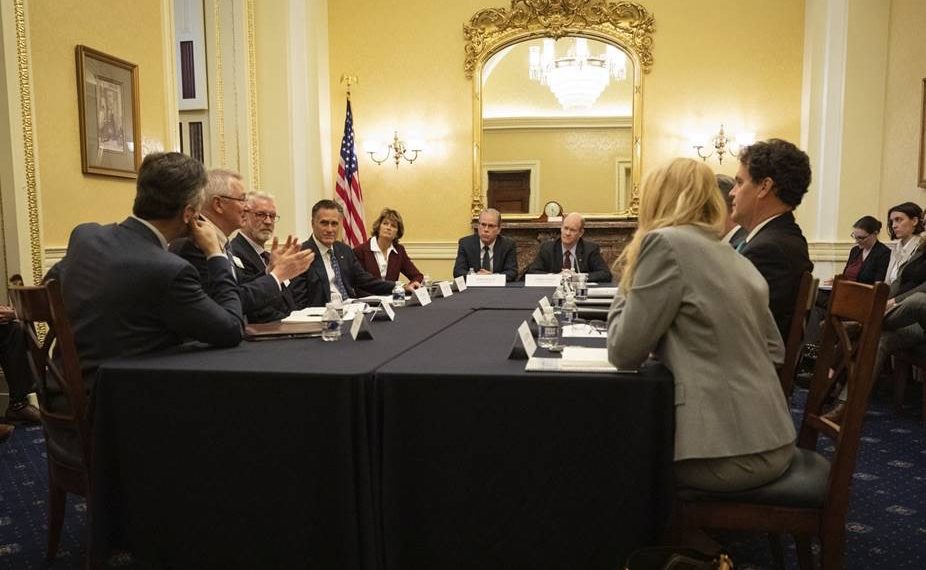Darkening Days
This week began badly with the Trump administration announcement formally withdrawing the United States from the Paris Agreement on climate change. This decision shows a stunning disregard not only for science but also economics. It’s driven by outdated views from the last century that held that climate action was costly and hurt jobs. We now know that smart climate action promotes greater efficiency of resource use, drives innovation and new technology, and provides long-term policy consistency. Combined, these lead to a much stronger, healthier economy.
Abandoning the Paris Agreement is cruel to future generations, leaving the world less safe and productive. It also fails people in the United States, who will lose out on clean energy jobs, as other nations grab the competitive and technological advantages that the low-carbon future offers. The decision also shows disregard for the three-quarters of Americans, including the majority of Republicans who want to stay in the Agreement.
But Amidst the Gloom …
Fortunately, the rest of the county is more enlightened. Dozens of U.S. states, hundreds of cities and thousands of businesses are pushing forward with climate action aligned with the Agreement. Together, this group of front-runners would be the world’s second largest economy — larger than China.
On Tuesday, I had the opportunity to witness notable leadership by the private sector, as I joined CEOs of Fortune 500 companies — members of the CEO Climate Dialogue — to urge Congress to enact bipartisan, market-based, climate legislation aligned with the Paris goals.
The CEO Climate Dialogue is a group of 20 Fortune 500 companies, which includes, among others, Ford, Dow, LafargeHolcim, and DTE Energy, as well as four leading environmental nonprofit organizations: C2ES, EDF, TNC and WRI. The group came together to press Congress to enact durable, market-based federal climate legislation that promotes equity and continues to support the competitiveness of the U.S. economy. This week we met with senators from both parties to urge legislative action.
We’ve seen corporations sign numerous pledges to support the U.S. staying in the Paris Agreement, to support a price on carbon and so forth. While these pledges are both necessary and important, what impressed me on Tuesday was seeing these CEOs not only talking the talk but walking the walk. They came from across the country to spend the entire day pressing influential members of Congress to enact legislation, outlining the risks they face and the opportunities they may miss in the absence of policy certainty and growing climate impacts.
Notably, they were mainly from heavy industries, and included the world’s largest chemicals company (BASF) and the world’s largest cement-maker (LafargeHolcim), as well as Dow and DSM. These are engaged in what are sometimes referred to as the hard-to-abate sectors. And yet here they were persuading lawmakers to place a price on carbon.
Jerry Anderson, the CEO of Detroit-based DTE Energy, explained how his company has moved from a largely coal-based power generator to one committed to zero net emissions by 2050, noting that the rest of the utility industry is poised to follow. Jamie Gentoso, the CEO of LarfargeHolcim acknowledged that the cement industry is a major source of carbon emissions and called for putting a price on those emissions to encourage the industry to adopt low-carbon technologies for the majority of the world’s infrastructure, which is yet to be built.
There’s no stronger proof that acting on climate makes good economic sense than a group of Fortune 500 CEOs outlining why they want Congress to act and how it is good for their businesses. Our own research backs this up, demonstrating that climate action is not only compatible with economic growth, but essential for achieving long term growth in the 21
st Century. The scale of the economic opportunity that can be unlocked by climate action is hard to overstate: $26 trillion from 2018 through 2030, according to the New Climate Economy.
New Hope from a New Caucus
Perhaps the most encouraging part of the day was the opportunity to meet with members of the new bipartisan Senate Climate Solutions Caucus. The caucus was founded by Senators Mike Braun, an Indiana Republican, and Chris Coons, a Delaware Democrat, who announced its other initial members this week: Senators Michael Bennet, a Colorado Democrat; Lindsey Graham, a South Carolina Republican; Angus King, a Maine Independent; Lisa Murkowski, an Alaska Republican; Mitt Romney, a Utah Republican and Jeanne Shaheen, a New Hampshire Democrat. The CEO Climate Dialogue affirmed the creation of this bipartisan caucus. It is worth noting that it has been over 11 years since any Senate Republicans have supported legislation to significantly reduce emissions and seriously address climate change.
We know we need bipartisan action to pass strong, durable legislation. In the meetings with caucus members, we stressed that creation of the caucus is a critically important first step, which must be followed by the introduction of legislation aligned with the six guiding principles of the CEO Climate Dialogue. These meetings by the CEOs were not a one-off event. We are committed to working with the Climate Solutions Caucus and all members of Congress to enact legislation, in line with the group’s principles, to address climate change.
I spent Wednesday and Thursday in London, coinciding with the launch of the UK election campaign. Fortunately, all major parties facing the voters there are committed to moving the country speedily towards net zero emissions by 2050, and to making the all-important COP26 climate negotiations at the end of next year in Glasgow — when countries are required to increase their ambition five years after Paris — a great success.
So, amidst the November gloom, some rays of hope. Not a bad week after all.



